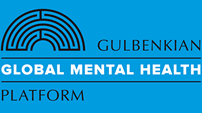Out of the Shadows

Of the half a billion people worldwide currently suffering from mental illness, three quarters live in the developing world.
In the poorest countries, governments spend very little on mental health care, leaving their citizens disproportionately affected by this crippling disease. And where access to appropriate healthcare is extremely limited, more often than not, the communities surrounding sufferers fail to understand their condition. Sick people are left isolated, or worse: forced to undergo tortuous, humiliating and terrifying treatment at the hands of relatives or community and religious leaders.
In rural West Africa, this treatment takes its most violent form with those suffering from mental disorders often left outdoors in the elements, chained to trees for years on end and regularly whipped to force "evil spirits" to leave their bodies. In India, economic and social exclusion has led to a spate of suicides by subsistence farmers. Meanwhile, Syrian children suffering from trauma after witnessing the atrocities of war in their homeland receive little or no medical attention, even after reaching the relative safety of refugee camps in Jordan, Lebanon and Turkey.
But as governments turn a blind eye, a vanguard of innovators is leading the fight back to inform communities and provide appropriate care. Earlier this year, People and Power filmed with some of these mental health activists working in India, rural West Africa and the Zaatari refugee camp for Syrian refugees in Jordan, hoping that governments, donors and aid agencies will eventually get behind their work.
Check the Aljazeera story here.
